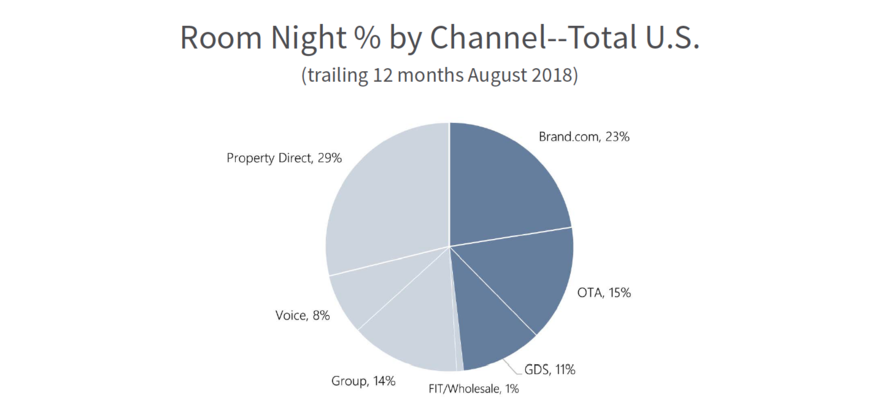ROCKVILLE, MD—Kalibri Labs’ “U.S. Hotel Industry Performance Overview” reveals luxury and economy...
In the News
HM Exclusive: Kalibri Labs' study finds sustained growth in direct bookings
by Elliott Mest
Hotel companies continue to grapple with online travel agencies for guest bookings and a new study from Rockville, MD-based Kalibri Labs—shared exclusively with Hotel Management in advance of release—indicates their efforts have not been in vain.
The Kalibri Labs’ report, now in its second year and titled “Book Direct Campaigns 2.0: The Costs and Benefits of Loyalty in 2018,” found hotel companies’ initial campaigns to attract loyalty members and drive direct bookings over a period from January 2016 through August 2018 have either stabilized or strengthened the growth rate of bookings via proprietary hotel company websites—the so-called Brand.com sites—primarily by growing loyalty programs. Meanwhile, bookings growth for online travel agencies during this period either held steady or decelerated, signaling a shift for the hotel industry.
Kalibri Labs' CEO and co-founder, Cindy Estis Green and VP of Revenue Strategy, Mark Mazzocco, authored the report. The first study, released in Oct. 2017, was commissioned to compare and contrast the hotel industry’s direct-booking pace before and after engagement campaigns were launched. This latest iteration examines whether the gains made from these campaigns can be sustained.
After two-and-a-half years of promoting direct bookings, roomnight demand through Brand.com in the United States is on average 50 percent higher than OTA roomnight demand, said Estis Green. While the original study examined 52 million bookings, this time Kalibri Labs combed through 80 million bookings and found while the industry benefitted from a burst of initial direct business as a result of large-scale advertising campaigns, true long-term gains were realized once hotels began updating their mobile applications to offer more perks for booking direct.
According to the new study, bookings made via Brand.com and those made directly with a hotel property account for 23 percent and 29 percent of all bookings, respectively, made between August 2017 and August 2018. Meanwhile, OTAs represent 15 percent of all bookings, trending closer to group bookings at 14 percent. Additionally, bookings made via voice channels stand at 8 percent, so all told the industry records roughly six in 10 room nights through direct channels.
“In the beginning, [brands] were all offering discounts on bookings, sometimes up to 10 percent, to entice people to sign up to be loyalty members,” said Estis Green. “In the last 2.5 years, almost all brands have substantially updated their apps to offer keyless entry, more features, mobile check-in and different services such as those. All these benefits only apply when booking through the brand’s app or as a loyalty member and those things were not in place in the beginning.”
image-block-outer-wrapper
layout-caption-below
design-layout-inline
combination-animation-none
individual-animation-none
individual-text-animation-none
"
data-test="image-block-inline-outer-wrapper"
>
sqs-block-image-figure
intrinsic
"
style="max-width:880px;"
>
class="image-block-wrapper"
data-animation-role="image"
>
>

Loyalty bookings made directly through a hotel’s website generate a return on investment that is nearly double that of the revenue earned via OTA channels. Source: Kalibri Labs




